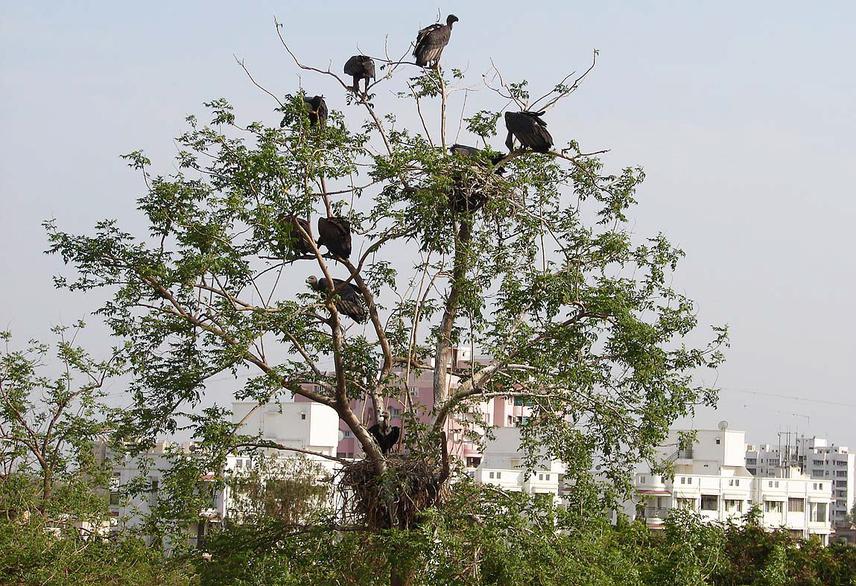Kartik Shastri
The aim of the project is to save vulture’s (gyps) natural Habitat and vulture conservation is my main motto. To save vultures nest in urban area.
Populations of Gyps vultures in Southeast Asia are in dire trouble. Already extinct as breeding species through much of their former range in Southeast Asia, populations of Gyps vultures have fallen dramatically across the Indian subcontinent during last decade. Work in India has recorded declines in excess of 95% in populations of three species across 12 Indian states since the early 1990s (oriental white-backed vulture G. bengalensis, long-billed vulture G. indicus and slender- billed vulture G. tenuirostris). In my area we aim to save oriental white-backed vultures and other and migratory vultures.

Nesting of White-rumped Vulture in the heart of Ahmedabad City.
Ahmedabad has a population of 179 oriental white-backed Vultures. The awareness campaigns are underway with major stake holders to make sure that Diclofenac is not used in veterinary practice. Veterinary Diclofenac is banned by law but the human formulations are not and are used by the veterinarians and others illegally.
One of the main challenges now is preventing human Diclofenac from being used for veterinary purposes. Ensuring that other toxic drugs do not become widely used is also a key action. We plan an NSAID survey and awareness about Diclofenac drugs through electronic and print media, brochures and poster presentations. We also plan training through SATCOM, actively involving veterinary doctors, students, local and religious leaders and forest/Panjarapoles staff. We also focus on saving vultures and their natural habitat through regular monitoring of nesting/ roosting tree and feeding sites with the help of volunteers. We involve local people to find injured, and dead birds. During the kite-flying festival (14th-15th January) thousands of birds became victim of the sharp glass powder coated maanja. The kite strings are so sharp that they sometimes chop off the whole wing. My primary focus here will be endangered, especially white-rumped Vultures,
For the last 7 years I have organised a rescue camp and treated injured birds at a nearby charitable hospital. I invited veterinary doctors from all over the world to help save vultures. I provide sick vultures with food. Healthy vultures are ringed with an RSPB ring and sick or dead birds are sent to Junagadh Zoo, Bombay Natural History Society, Anand Veterinary College and SACON-Coimbatore. I have created a system by which all unnatural vulture deaths can be pathologically investigated and the cause of death looked into. Nesting colonies and nests are regularly monitored. The nesting season is October to March. The nest search is carried out once a fortnight and as and when a nest was located it is observed every week.